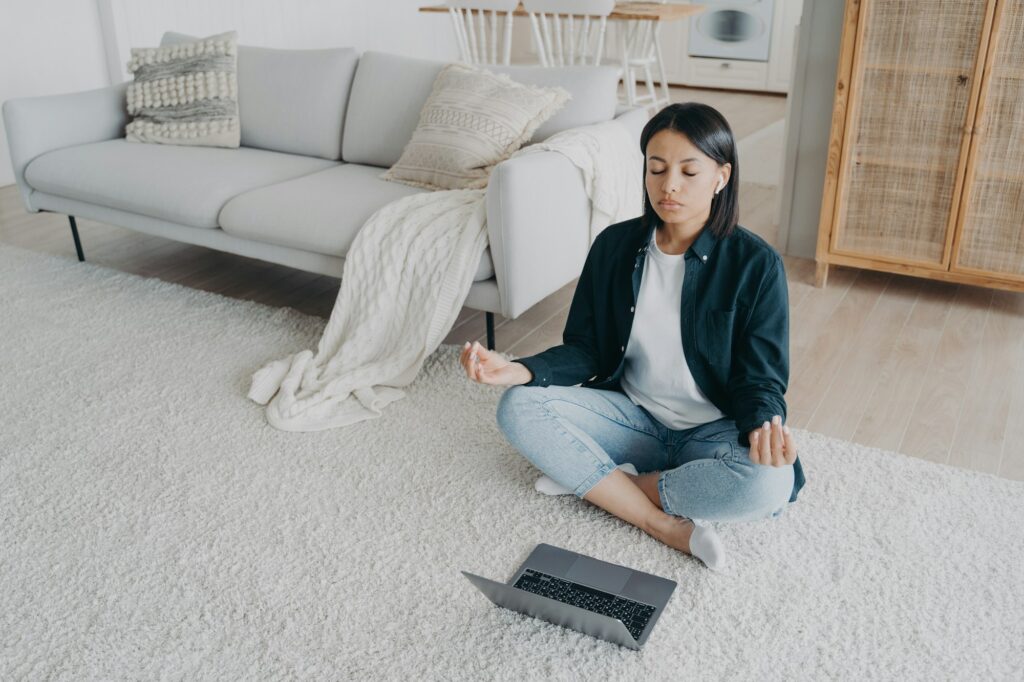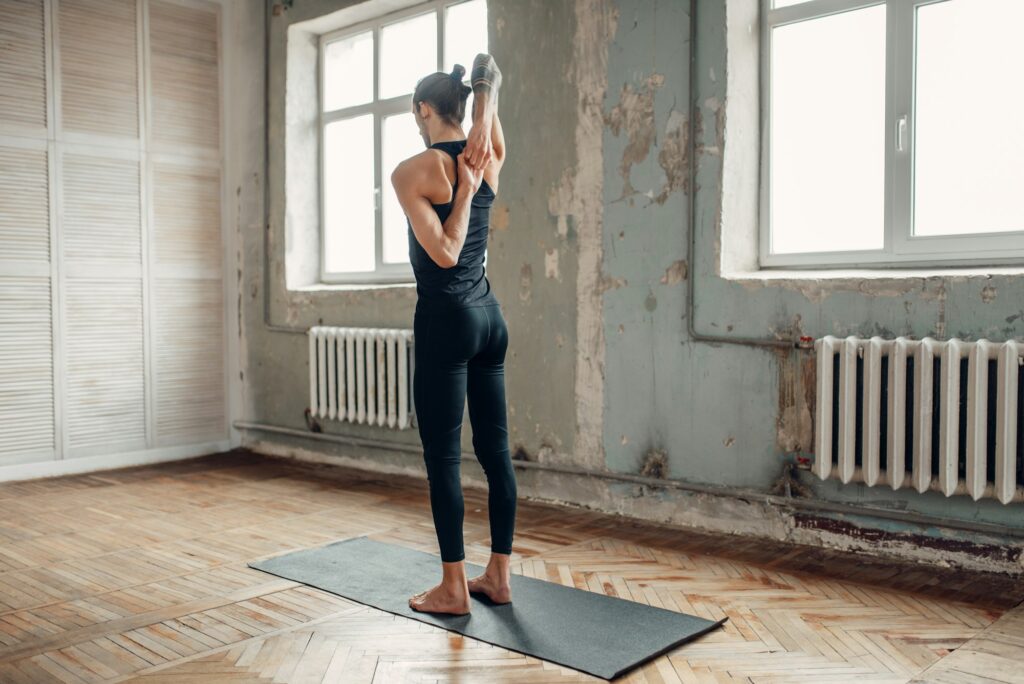6 Most Popular Forms Of Meditation- Which one is best for you?
Meditation- Which type is best for you?
I must admit that I used to think of mediation as a little woo woo. It was the burning of incense, sitting in a particular way, chanting and the word namaste. I figured it just wasn’t for me.
With that said, we all evolve, and so has my opinion on meditation and other relaxation techniques. Through yoga and silent prayer discipline, I have grown to appreciate the benefits of meditation. It’s best known as a therapeutic tool to help ease depression, stress, anxiety, addiction, and chronic pain.
Meditation also proves to be a powerful tool for athletes, enhancing both their mental and physical performance. By incorporating meditation into their routine, athletes experience improved focus, reduced stress, and enhanced overall well-being. The practice helps cultivate a resilient mindset, enabling athletes to navigate high-pressure situations with calmness and clarity. Moreover, meditation contributes to better emotional regulation, aiding athletes in managing the highs and lows of competitive sports.
There are many forms of meditation so finding the one that suits you is the goal. Meditation is good for us, we all know that. Don’t we? It has been scientifically proven to improve our health. The question is, which meditation technique is best for you?
We all hear people talk about meditation but taking time to actually trying it is something else right? Since meditation has come into vogue as a means to enhance human performance, in school, business and in locker rooms there is more talk about how meditation enhances our life.

MEDITATION IS A LEGIT WAY TO TO ENHANCE YOUR LIFE
Most people don’t know how and why to meditate. If this is you, I recommend you read the book Meditation and Mindfulness by Andy Puddicombe. It’s a quick read and Andy is a great storyteller who paints a simplified explanation as to why meditation is a legit way to enhance your life. Andy’ an ordained Buddhist monk who trained in monasteries in India, Myanmar, Thailand, Austria, Russia, and Scotland.
It’s a personal choice on how to practice meditation and there is no right or wrong way. The key is to identify a style that compliments your soul—you’ll not only experience the pure joy in meditation, but you might find you’re better at it than you thought! Just know it will not feel normal at first but give it time.
Try to find a comfortable place meditate. Many times this will be in your personal space in your home. To make it easier to meditate at home, create a mindful home so the space you spend the most time, is peaceful and zen.

6 Most Popular Types Of Meditation
1. Mindfulness Meditation
Best for: Those who want to incorporate mindfulness into their daily life.
Mindfulness meditation is something people can do almost anywhere by being mindful and aware of your surroundings.
This form of meditation is extremely popular and easy to do if you make an effort to live in the moment.
2. Body Scan Meditation
Best For : People who struggle with pain or have sleeping issues.
Body Scan mediation encourages people scan their bodies for areas of tension. The goal is to notice tension and to allow it to release.
Others encourage a person to visualize a wave, drifting over their body to release tension from their health to their toes.
3. Spiritual Meditation
Best for :People who thrive in silence and are looking for spiritual growth.
Spiritual meditation is popular in Eastern religions, such as Hinduism and Daoism, and in Christian faith. It’s similar to prayer in that you reflect on the silence around you and seek a deeper connection with your God or Universe.
People often use gemstones during this meditation to enhance its healing effects. Gemstones can be incorporated into your meditation practice in a variety of ways. One popular way is to wear healing jewelry, such as Jade stone bracelets or Amethyst rings. Another way to use gemstones is to place them around you during practice or put it in your pocket or purse.
4. Movement Meditation
Best for: Anyone who finds sitting still is difficult, finds peace through action.
Yoga is one form of movement meditation. Movement meditation may also be as simple as walking through the woods, gardening, qigong, and other gentle forms of motion. It’s an active form of meditation where the movement guides you.
Best for: People looking for a more structured meditation practice or those new to meditation.
5. Mantra Meditation
This type of meditation uses a repetitive sound to clear the mind. It can be a word, phrase, or sound, one of the most common being “om.” Focusing on specific words over and over.
Your mantra can be spoken loudly or quietly. After chanting the mantra for some time, you’ll be more alert and in tune with your environment. This allows you to experience deeper levels of awareness.
The official website for transcendental meditation states this form of meditation is “… a simple, natural, effortless procedure practiced 20 minutes twice each day while sitting comfortably with the eyes closed.
6. Visualization Meditation
Visualization meditation is a technique focused on enhancing feelings of relaxation, peace, and calmness by visualizing positive scenes, images, or figures.
When you practice visualization meditation get ready to imagine and envision a place. Hold a beloved figure with great intention. Another form of this type of mediation involves imagining yourself succeeding at specific goals, which is intended to increase focus and motivation.
Athletes also use visualization to boost your mood and focus on what you want to achieve.
Best for: People who find peace in repetition.
“Meditation is not a way of making your mind quiet. It’s a way of entering into the quiet that’s already there.”
Deepak Chopra
HOW OFTEN SHOULD YOU MEDITATE?
There is no right answer to this question. Keep in mind that any meditation is better than no meditation at all. So, if a you only able to meditate once a week, it’s a good place to start. Many studies seem to conclude that just 20 minutes of mindfulness meditation per day can result in significant benefits.
In fact, researchers from Harvard University carried out an intensive study to figure out what happens to our brains when we meditate regularly over time. 16 participants were put through a guided meditation program for 27 mins each day for two months. When the two months were up, the researchers concluded that the regions of the brain associated with memory, learning, emotion control, self-awareness and perspective, increased in volume. This is so exciting!!
If it’s your goal to meditate a few times per week, work up to one session per day. Meditating around the same time each day can make meditation a habit that is easy to incorporate into daily life.
Consider downloading a meditation app. The UCLA Health free meditation app is awesome, download it here.

Most Frequently Asked Questions About Meditation:
-
How do I choose the right meditation technique for me?
- Experiment with different methods to find what resonates with you. Consider your goals, preferences, and comfort level.
-
Can you explain mindfulness meditation and its benefits?
- Mindfulness meditation involves being present in the moment, enhancing awareness and reducing stress. Benefits include improved focus and emotional regulation.
-
What is transcendental meditation, and how does it differ from other types?
- Transcendental meditation is a mantra-based technique aiming for deep relaxation and heightened consciousness. It differs in its personalized mantra approach.
-
Is guided meditation suitable for beginners?
- Yes, guided meditation provides instruction and visualization, making it accessible for beginners to ease into the practice.
-
How long should a meditation session typically last?
- Start with shorter sessions (e.g., 5-10 minutes) and gradually increase as you become more comfortable. There’s no strict rule; consistency matters more.
-
What are the benefits of loving-kindness meditation?
- Loving-kindness meditation fosters compassion and positivity, promoting emotional well-being and improved relationships.
-
Can meditation help with stress and anxiety?
- Absolutely. Meditation has proven to be effective in reducing stress and anxiety by promoting relaxation and a calm state of mind.
-
Are there specific meditation techniques for better sleep?
- Yes, practices like deep breathing and body scan meditation can enhance relaxation, contributing to better sleep quality.
-
How does mantra meditation work, and is it effective for everyone?
- Mantra meditation involves repeating a word or phrase to focus the mind. It’s effective for many but may vary in individual experiences.
-
What role does breathwork play in meditation practices?
- Breathwork is often integral to meditation, promoting relaxation and mindfulness. Techniques include deep breathing and observing the breath.
-
Can meditation be combined with other wellness practices, like yoga?
- Absolutely. Many people combine meditation with yoga, enhancing the mind-body connection for a holistic wellness approach.
-
Is there scientific evidence supporting the benefits of meditation?
- Yes, numerous studies highlight the positive effects of meditation on mental health, cognitive function, and overall well-being.
-
How often should I meditate to experience noticeable benefits?
- Consistency matters more than duration. Aim for regular practice, even if it’s just a few minutes daily, to experience benefits over time.
-
Are there meditation apps or online resources to guide beginners?
- Yes, popular apps like Headspace and Calm offer guided meditations suitable for beginners, providing a structured introduction to the practice.
-
Can meditation help with improving focus and concentration?
- Absolutely. Meditation strengthens the ability to focus by training the mind to stay present, enhancing overall concentration.
TAKE AWAY:
Meditation is a practice where you may use any technique that feels right to you. It is proven to train attention and awareness, and achieve a mentally clear and emotionally calm and stable state. The potential benefits should be enough to at least give it a try. Let me know if meditation moves you! 🙂







